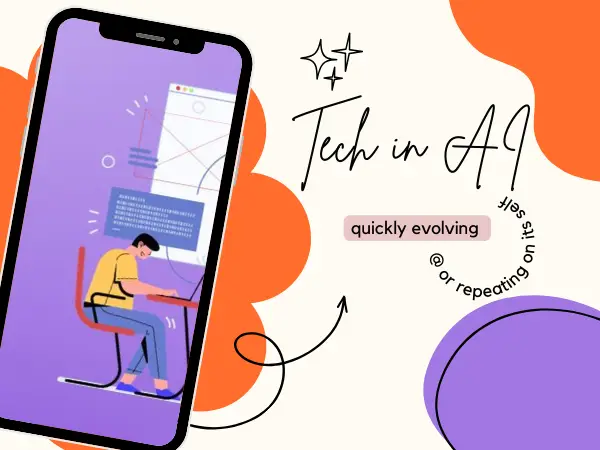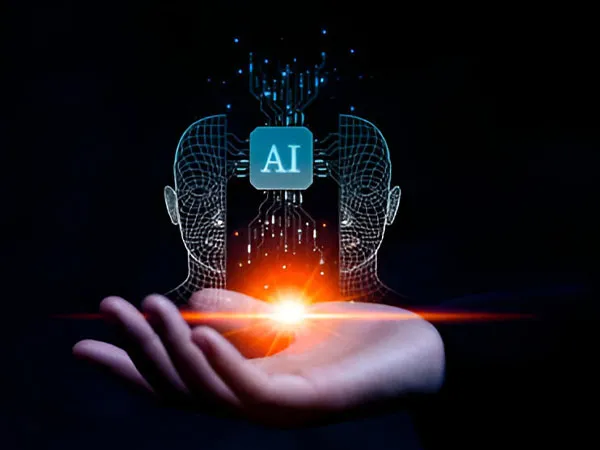
How AI Tools Can Streamline Your Business WorkflowHow AI Tools Can Streamline Your Business Workflow
Introduction Running a business today means constantly looking for ways to work smarter, not just harder. Whether you’re leading a small team or managing a large organization, efficiency and adaptability are key. One of the biggest enablers of both is Artificial Intelligence (AI). Far from being a distant, futuristic concept, AI is already reshaping how companies manage day-to-day operations. But what does that look like in practice? Here’s a look at how AI tools are being used to simplify workflows, boost team performance, and help businesses operate more effectively. 1. Cutting Down on Repetitive Work Let’s face it—some tasks just eat up time. Data entry, appointment scheduling, sorting emails, answering FAQs… these are necessary but don’t always need a human touch. That’s where AI steps in. Tools like chatbots, automated invoicing systems, and smart scheduling apps can handle these routine jobs without breaking a sweat. The result? Your team spends less time on busywork and more time on the projects that move the needle. It’s not about replacing people, it’s about freeing them up to do their best work. 2. Smarter Decisions, Backed by Data Today’s businesses are sitting on more data than ever, but making sense of it all is another story. AI excels here. It can sift through huge volumes of information and spot trends, patterns, and insights that might otherwise go unnoticed. From forecasting demand to tweaking your pricing strategy or fine-tuning a marketing campaign, AI-powered analytics help you make faster, more informed decisions. It’s like having a team of data scientists working around the clock, minus the overhead. 3. Better Team Collaboration AI isn’t just about automation—it also helps people work better together. In project management tools, AI can help assign tasks more intelligently, track progress, and send out timely nudges to keep projects on track. And for global teams, AI-powered language tools can help bridge communication gaps, making it easier to collaborate across borders and time zones. By improving how information flows between people, these tools support stronger, more productive teams. 4. A More Personalized Customer Experience Personalization used to mean knowing your customer’s name. Now, with AI, it means much more. AI can help tailor emails, recommend products, and even predict what a customer might need next—all in real time. By delivering relevant, personalized experiences, businesses can deepen customer relationships and build trust. And in a competitive market, that kind of connection can make a big difference in customer loyalty and long-term growth. Conclusion AI is no longer a “nice to have,” it’s becoming a vital part of doing business efficiently. Whether it’s eliminating manual tasks, turning raw data into actionable insight, helping teams collaborate, or improving how you connect with customers, AI tools are changing the game. As these technologies continue to develop, now’s a smart time to start exploring how AI can fit into your workflows. With the right tools in place, your business can not only keep up but lead the way.
Read More
How AI Tools Can Streamline and Strengthen Your Business Workflow
Introduction Running a business today means moving fast, staying flexible, and constantly looking for ways to work smarter. For many companies, Artificial Intelligence (AI) is no longer just a buzzword — it’s a practical solution to help make everyday operations more efficient. From cutting down on repetitive tasks to enhancing decision-making and improving the customer journey, AI tools are reshaping how businesses get things done. Here’s a closer look at how AI can simplify your workflow and help your team get more out of each day. 1. Taking the Load off Repetitive Tasks Let’s face it — no one loves manual data entry, scheduling appointments, or replying to the same customer questions over and over. AI tools can step in to handle these time-consuming tasks so your team doesn’t have to. For example, chatbots can provide quick responses to customer inquiries around the clock, while AI scheduling tools can automatically arrange meetings based on everyone’s availability. Even invoice processing and inventory management can be automated. The result? Less busywork, fewer errors, and more time to focus on the bigger picture. 2. Smarter Decisions, Backed by Data AI is incredibly good at making sense of large amounts of data. It can quickly analyze customer behavior, sales trends, and market patterns to provide real-time insights you can act on. That means you can forecast demand more accurately, refine your pricing strategies, and personalize services based on what your customers want. Instead of guessing, you’re making decisions rooted in evidence — and doing it faster than ever before. 3. Better Teamwork and Communication Efficient teamwork depends on staying organized and aligned, especially if your team is remote or spread across time zones. AI-powered project management tools can help keep everyone on track by assigning tasks, sending reminders, and even flagging potential bottlenecks. Some platforms use natural language processing to bridge communication gaps across languages and regions. These tools don’t just keep things moving — they make sure everyone is moving in the same direction. 4. Creating a More Personal Customer Experience Customers expect more than a one-size-fits-all approach, and AI makes it easier to deliver. Whether it’s recommending products based on past purchases, sending targeted email campaigns, or offering real-time support through chat, AI helps tailor interactions to each individual. When customers feel understood and valued, they’re more likely to return and tell others about their experience. Conclusion AI tools aren’t here to replace people — they’re here to make their jobs easier, faster, and more impactful. By integrating AI into your daily workflow, you can streamline operations, make better use of your data, and provide a more personalized experience for your customers. Whether you’re running a startup or managing a growing enterprise, now is the time to explore how AI can help you do more with less effort — and position your business for long-term success.
Read More
How AI is Transforming Customer Service
In today’s digital age, exceptional customer service is crucial for business success. As customer expectations continue to rise, companies are turning to Artificial Intelligence (AI) to enhance their service offerings.
Read More
Machine Learning vs. Deep Learning: What’s the Difference?
As the fields of Artificial Intelligence (AI) and data science continue to evolve, terms like Machine Learning (ML) and Deep Learning (DL) are becoming increasingly prevalent.
Read More
The Rise of AI in Everyday Applications
Artificial Intelligence (AI) is no longer a futuristic concept confined to sci-fi novels. It has seamlessly integrated into our daily lives, transforming the way we work, communicate, and make decisions.
Read More
AI in Healthcare: Revolutionizing Patient Care
Artificial Intelligence (AI) is making remarkable strides across various industries, and healthcare is no exception.
Read More
Tech in AI: Rapid Evolution or Repetition?
The field of artificial intelligence (AI) is often celebrated for its rapid advancements and revolutionary potential. However, some critics argue that, despite the hype, AI technology sometimes seems to recycle old concepts or show incremental improvements rather than groundbreaking innovations.
Read More
AI in Social Media – Is Your Brand Making the Most of it?
In the fast-evolving landscape of social media, artificial intelligence (AI) is emerging as a transformative force. For brands looking to enhance their online presence, AI offers a myriad of opportunities to optimize marketing strategies, engage with audiences more effectively, and gain a competitive edge.
Read More
The Limitations of the Race to AI
The race to develop advanced artificial intelligence (AI) technologies is intense and competitive, with significant implications for businesses, economies, and societies.
Read More
The History of Artificial Intelligence: A Journey Through Time
Artificial Intelligence (AI) has a fascinating and complex history that spans centuries, with roots in mythology, philosophy, and the early days of computing.
Read More